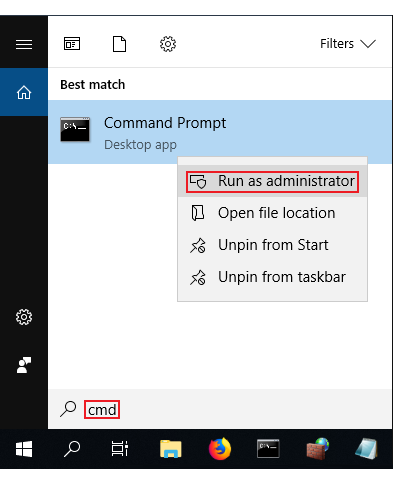Template:Preparing easyrsa: Difference between revisions
Appearance
No edit summary |
|||
| Line 18: | Line 18: | ||
<li>Once you're done, save the file and close the editor.</li> | <li>Once you're done, save the file and close the editor.</li> | ||
<li>Run the following commands: | <li>Run the following commands: | ||
<pre>vars | <pre>vars.bat | ||
clean-all</pre> | ./easyrsa clean-all</pre> | ||
</li> | </li> | ||
</ul> | </ul> | ||
Revision as of 11:27, 29 October 2020
Step 2: preparing EasyRSA
- Now we can start preparing to generate certificates and keys. For this we'll be using the EasyRSA 3 application that was installed along with OpenVPN.
EasyRSA commands have to be executed via the Windows Command Prompt. It can be opened by typing cmd in the Windows search bar (Windows button + S). When you launch it, make sure you run it as administrator:
- Change the current directory to the EasyRSA folder. To do so, execute this command:
cd "C:\Program Files\OpenVPN\easy-rsa"
- Launch EasyRSA:
EasyRSA-Start.bat
- Before you can generate files with EasyRSA, you must first initialize a directory for the Public Key Infrastructure (PKI). This can be done with the following command:
.\easyrsa init-pki
- Open the vars.bat file with the Notepad text editor:
notepad vars.bat
- This is the template file for generating certificates, i.e., the information stored here will be offered as default values during certificate generation. Locate and edit the following lines in accordance with your needs:
set KEY_COUNTRY=US set KEY_PROVINCE=CA set KEY_CITY=SanFrancisco set KEY_ORG=OpenVPN set [email protected]
- You can also set the key size for the Diffie Hellman parameters:
set DH_KEY_SIZE=2048
- Once you're done, save the file and close the editor.
- Run the following commands:
vars.bat ./easyrsa clean-all
